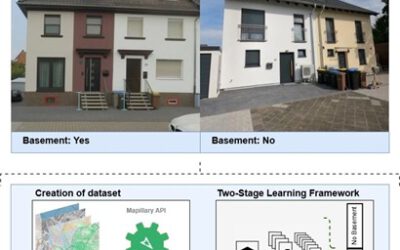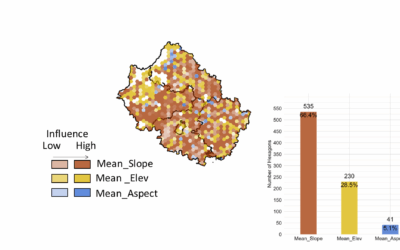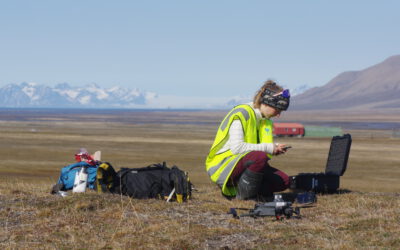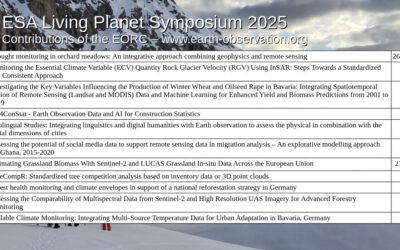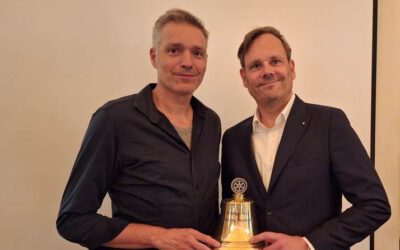At the start of this year’s lecture series “The threatened planet – Challenges for Geography” of the Frankfurt Geographical Society (FGG), Prof. Dr. Christian Geiß (Teamleader at DLR / Professor at the University Bonn / Lecturer and pursuing his habilitation here at JMU Würzburg) presented current works on the use of artificial intelligence techniques for the analysis of natural hazard risks.
The title of his lecture was “Artificial intelligence for the analysis of natural hazards“.
And here is the abstract of his lecture: Global change encompasses human-driven changes to the Earth system. These changes include increasing urbanization and increasing vulnerability to natural hazards such as earthquakes, tsunamis or flood events. With regard to the risks from natural hazards, a large number of uncertainties arise. Existing models often only allow a very rough estimate, as they are based on highly aggregated or outdated input data. This situation is increasingly aggravated because urbanization processes dramatically reshape settlement areas within a very short time. Accordingly, it is often hardly possible to precisely quantify the risks and possible consequences of natural hazards. The lecture shows the use of artificial intelligence in combination with innovative geodata to answer the question to what extent settlement areas are threatened by natural hazards today and in the future.
This year’s FGG lecture series is a series of presentations of global challenges such as increasing heat waves, climate change, natural hazards and urbanization, loss of biodiversity, desertification, thawing permafrost in high mountains and many other current topics. What are the dimensions of these developments, what are the consequences and what are possible solutions for different ecological and climatic zones? These are questions that geography in particular must take up and advance, because traditional scientific proposals no longer seem to be effective. In seven lectures, renowned experts will address such issues. It is time for humanity to fundamentally rethink the way we treat the earth and its resources!
See the program here: https://www.uni-frankfurt.de/142892409/2023_2024_Der_bedrohte_Planet
Photo: Prof. Dr. Jürgen Runge (President FGG) and Prof. Dr. Christian Geiß




